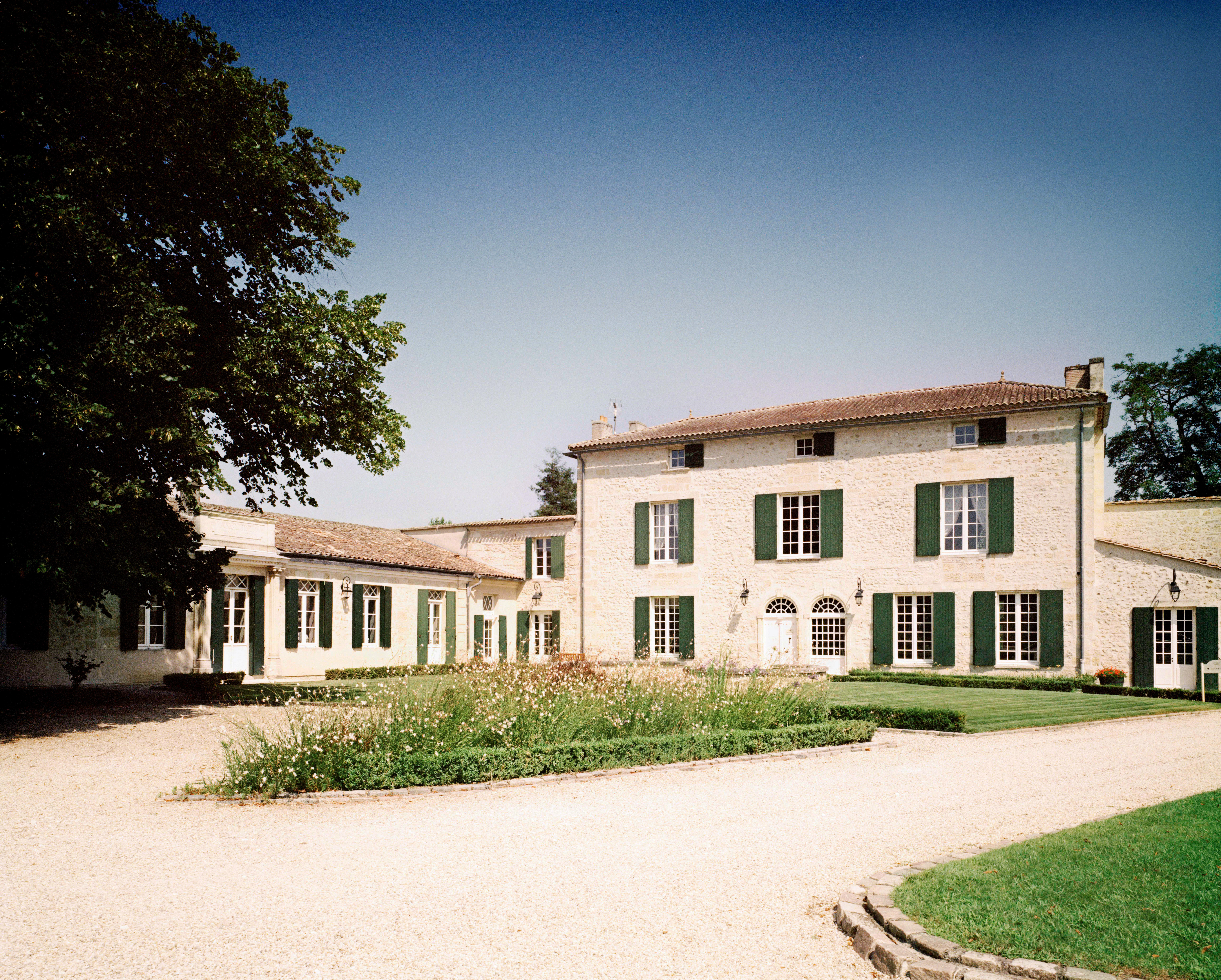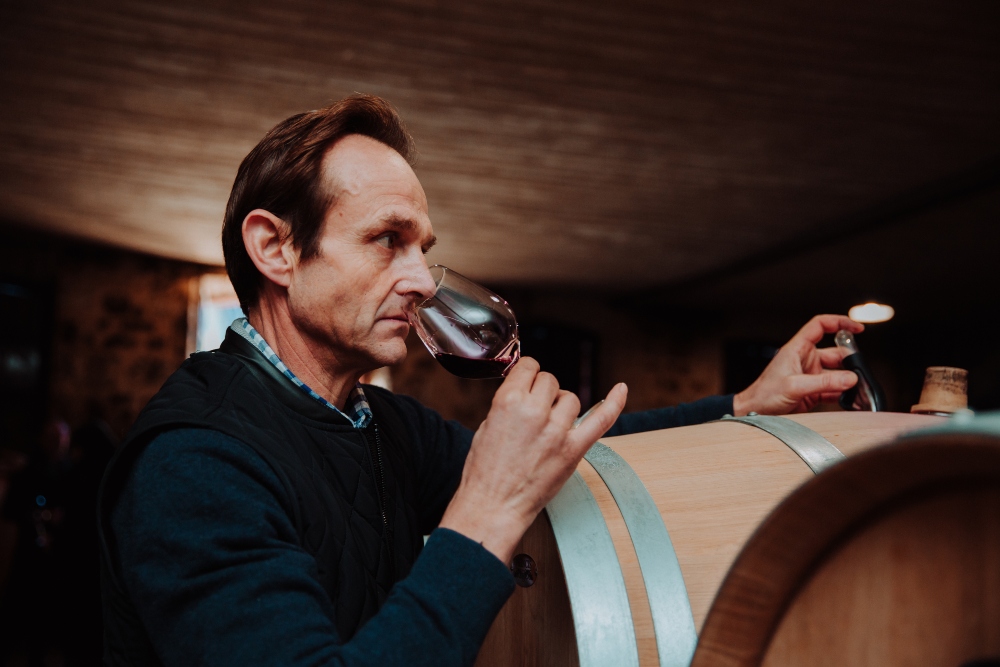Château Angludet: revival and resilience
Author: Charlie Geoghegan

It’s 60 years since the Sichel family bought Château Angludet. Ahead of the launch of our new Own Selection Margaux, we speak to Charles Sichel about revival at the estate, and its characteristic resilience.
The Sichel family set up in Bordeaux in 1883. Initially an outpost of their UK business, Maison Sichel would soon become a major négociant on the Place de Bordeaux. It wasn’t until 1938, when they bought a stake in Château Palmer, that the family became vignerons. They upped sticks permanently to France in ’61 after buying Château Angludet.
Charles Sichel and his four brothers represent the sixth generation in wine – and the first to be “born and bred in France”, he explains over Zoom. Growing up, Angludet was both the family vineyard and the family home. The boys liked to go fishing at the local lake. Charles has memories of the property’s soils brimming with life back then, a free and easy source of bait for the region’s eels and lampreys. “All it took was a bit of digging with a spade around the vines,” he recalls, “and you’d get worms coming up. You’d take those and off you’d go fishing.”
REVIVAL
Today, the Sichel brothers have all grown up. Each is involved in the wider family business to a greater or lesser extent, as are some of their own children. Charles has observed a major deterioration in soil health over his lifetime.
But there’s a deliberate revival underway at Angludet, led by Charles’ brother Benjamin, in charge here since ’89. Sustainability efforts – organic and biodynamic viticulture, and agroforestry – are top of Benjamin’s agenda. “Not a single square inch of the vineyard should be bare,” Charles says of their ethos. “There are so many nutrients that travel from one plant to another, plus insects. Planting fruit trees; sowing the right plants in between the vines; the soils are alive again.”

Biodynamic certification is expected later this year, though it’s not the goal in and of itself, Charles says. “It’s only just the beginning. When the vines’ natural environment is strong and alive, they are much more resistant to disease and extreme temperatures. They look after each other a lot better than we ever could.”
Unfortunately, they’re well accustomed to “extreme temperatures” here. You can’t talk about Angludet for any length of time without broaching the subject of frost. The estate has felt its devastating impact again and again, from the Sichels’ very early days here.
DISCOVERING ANGLUDET
When Peter and Diana Sichel, Charles’ parents, bought the estate, it was “in ruins”. The massive spring frost of ’56 had devastated the vineyard, reducing it to a fraction of its former size. Instead of replanting the ravaged vines, the owner at the time had decided to focus on livestock and cereals. “The wine business then was not what it is today,” says Charles. “It was easier to make a living that way than it was with wine.”
Though what they found was largely abandoned, the Sichels “fell in love with the place”. Charles cites the proximity to Palmer (“a short walk through the vines” from one to the other) and the potential of the terroir (“the possibility of making some very good wine”) as deciding factors. The estate occupies a quiet quarter of the Margaux appellation in the commune of Cantenac. Further inland from the Gironde than Palmer and away from the D2 road, it’s nestled between Giscours and du Tertre. “It’s unspoiled, very quiet and perfectly situated,” says Charles.
In the 60 years since the Sichels arrived, Angludet has gone from strength to strength. “We’re extremely well followed in the UK,” Charles says proudly. “Berry Bros. & Rudd has been selling Angludet since the year dot. We’re absolutely delighted to be supplying the Own Selection Margaux.”
You can buy our 2017 Own Selection Margaux or browse all of our Own Selection wines on bbr.com.



I had the good fortune to visit Ch Angludet in March 2020 with my wife, and taste with Daisy Sichel. What an estate, very friendly and welcoming! The wines have been a firm favourite of our family for many years since my father introduced us to them in the 80’s, and they will continue to be so. Very pleased you’ve now got them as your house Margaux. Whilst I have vintages of the grand vin in store, I’ve struggled to find La Reserve in the UK. Looking forward to tasting this!
Thank you for your comment, Alistair. Daisy is an excellent host and a credit to the estate. I do hope you enjoy the wine.
All the best,
Charlie
Among my choice of a dozen cases of ‘89
Bordeaux in 1989. Was indeed Château
Angludet. We enjoyed it through the nineties, holding up very well against the
wines I had chosen.Pichon Longville
Leoville Barton. And two Haut Brion.
One of which I sold at Christies a couple
of years later and returned my investment. And I have two bottles left!!!!